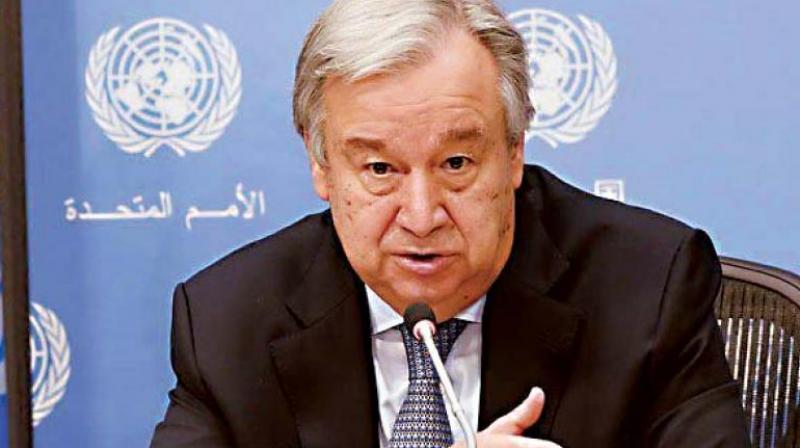UN chief optimistic over peace efforts to denuclearise Korean Peninsula
UN Secretary General said that 'things are on track for a meaningful negotiation and I believe it's in everyone's interest'.

United Nations: UN chief Antonio Guterres expressed optimism that the full denuclearisation of the Korean Peninsula could become a reality, following last week's historic joint declaration by the leaders of the north and south which eased months of rising tension over North Korea's nuclear programme.
The UN Secretary General said after talking to South Korea's President Moon Jae-in this week that "things are on track for a meaningful negotiation and I believe it's in everyone's interest", BBC reported.
South Korea's leader met his counterpart in North Korea Kim Jong Un at a historic summit on the border between the two countries last Friday, in which they agreed to work towards a lasting peace and strengthen inter-Korean ties.
Guterres was also asked if he was worried that the US is reportedly considering withdrawing from the Joint Comprehensive Plan of Action (JCPOA), involving Iran and the five Permanent Members of the Security Council plus Germany and the European Union. The JCPOA, signed in 2015, limits Iran nuclear development programme, in exchange for the lifting of sanctions, and the UN chief described it as "an important achievement".
"The JCPOA was an important diplomatic victory and I think it will be important to preserve it," he said.
"But I also believe that there are areas in which it will be very important to have a meaning dialogue because I see the region in a very dangerous position," he said during his trip to London. "If one day there is a better agreement to replace it it's fine, but we should not scrap it unless we have a good alternative," said the Secretary-General.
On Syria, the UN chief said that there was a "risk of fragmentation" of the entire country after more than seven years of brutal civil conflict. "I don't think that anybody can win the war…On the other hand, I don't see how Syria can be reconstructed with the support of the international community if there is no political solution in which all groups of Syrian society feel represented," he said.
"We need to have a political solution that all Syrians feel comfortable with, and that requires a level of dialogue that until now has not been possible," he said, adding that "we have not yet had the leverage to create the conditions for that to happen."
He said that he had "not given up" on making warring parties in Syria accountable for their use of chemical weapons.
"I still believe that we need to insist, and we are looking for avenues that might allow, to create a mechanism of attribution agreed by the Security Council, that will be able to define who's responsible for any chemical attack, creating the conditions for accountability".
He added that "the re-establishment of a mechanism of accountability in Syria is very important and I will not give up on that".

